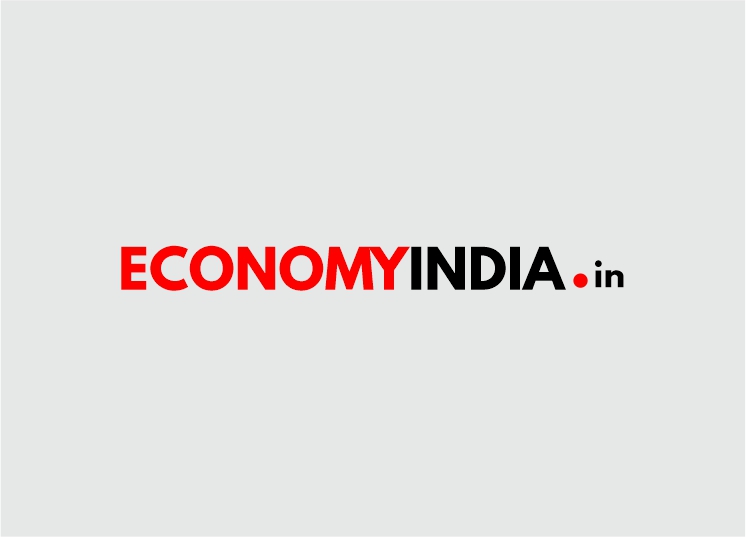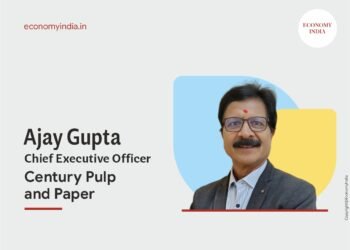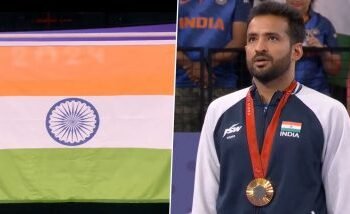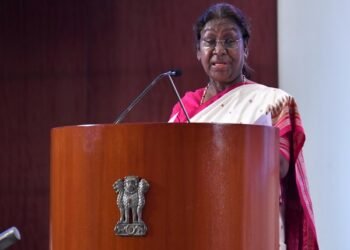Shakti Sinha did lay a lot of emphasis on the right kind of economic thinking to be engrained in today’s youth, international markets, and the way it impacted one’s country.
By SUDARSHAN RAMABADRAN
It is hard to imagine the silence of someone who was always a voice of appreciation and encouragement for the youth.
Shakti Sinha was a distinguished bureaucrat with late Prime Minister Atal Bihari Vajpayee and the former Director of Nehru Memorial Museum and Library. He always stood for encouraging young thinkers and sought for them to come up with innovative ideas. All this he did unassumingly. He always greeted me with ‘vanakkam’ and spoke in chaste Tamil when we met such was his versatility.
Be it in Chennai or Delhi, he would always encourage the youth to think deeply and not superficially.
I remember he addressed one of the meetings of the Tamil Nadu Young Thinkers Meet in 2016 in which he urged youngsters to look at ‘good governance’ more deeply. He delved deep on economics, policy-making and good governance in the meet. No matter which side of the spectrum one would be on he would present points very convincingly with all sides agreeing.
One would think that a bureaucrat would be out to curb another’s policy. But with his vast administrative experience be it in serving Andaman and Nicobar Islands, Delhi or serving the late Prime Minister AB Vajpayee, here was a bureaucrat who said the problem lies in the youth getting in and getting it fixed.
He was really passionate about social cohesion and wanted to weed out the issue of caste-based discrimination in the society. He wanted to have clear, mature conversations on the subject so that we can come together and wipe out the divisions that exist in our society and pave way for socially disadvantaged populations to be empowered fully.
Unassuming, gentle, always ready for a conversation — these are all important attributes of the man. If one manages to scroll through his condolences messages, one would see this words be highlighted again and again and I think this is true testimony to his personality.
Another opportunity where I had to work with him was when India hosted its first conference on soft power organised by the India Foundation. He evinced how important it is for India to highlight some of these subjects to the world. We needed a story to communicate to the world and this conference provided that opportunity, according to him.
He was passionate about Afghanistan and was deeply worried about the pace at which it fell to Taliban. He tracked developments at par with a young enthusiast to actually ascertain how bad the situation was in Afghanistan and discuss what needed to be done to rectify.
A repository on late Prime Minister Atal Bihari Vajpayee, his latest book ‘Vajpayee Years: The Years that Changed India’ is evidence to this. Owing to Covid-19, we could not host him for a physical event, but we did manage to get his virtual time to address audiences in Chennai who were probably not very aware of Vajpayee but needed to be empowered. He gave the listeners that attention and stayed with us for the stipulated time of the dialogue, to patiently answer the well-attended virtual dialogue on his book.
At no point in time during the dialogue, it looked he was promoting the book. The book was but a means, but his inputs and words came from his experience of knowing the late Prime Minister so well and the evolving political situations from there on in.
I will never forget our visit together to the Bumla pass in Tawang valley in Arunachal Pradesh. He made it a point to sit with us young thinkers and explain the complexities of the border situation and the history that led to where we stand today.
I mean there are so many examples in my association with him, be it public policy or foreign policy, be it formal or informal, he was also forthcoming to engage with the young and help decipher for the benefit of understanding.
Not many had this unique characteristic. Perhaps this was ingrained in him. He also wanted to do something ‘different’, perhaps this was his way of doing so and inspiring young learners to take the path of nation building.
His relentless contribution for the International Buddhist Confederation cannot be understated in recent times. He worked for Buddha’s eternal teachings and was proud if a single country would honour his teachings.
He did lay a lot of emphasis on the right kind of economic thinking to be engrained in today’s youth, international markets, their functioning and the way in which it impacted one’s country. These formed the basis of his talks with youth all the time.
Giving credit where due, India Foundation gave young thinkers the opportunity to interact with bureaucrats who had a penchant for change and inspired the young to look ahead and aspire for change when it comes to nation building. Shakti Sinha was one such stalwart. Gone but never forgotten.
DISCLAIMER: The writer is an author and a columnist and is currently an MPD candidate at University of Southern California
(The views expressed in this article are those of the author and do not represent the stand of this publication.)













